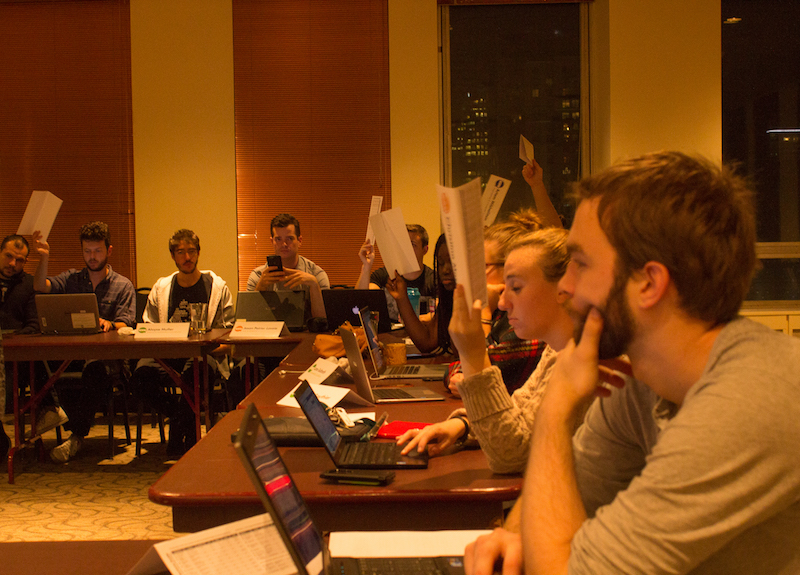Confusion over whether Graham Carr will not have to undergo a review
Newly-appointed provost, Graham Carr, will not be receiving a review for his previous position as VP of research and graduate studies as he enters his new role, a move which some students on senate were concerned about.
During a Concordia senate meeting on Oct. 7, former CSU academic and advocacy coordinator Marion Miller asked Concordia president Alan Shepard if an evaluation committee will be struck to review Carr. What Miller didn’t know when she posed the question was that it had already been decided that Carr would not undergo a review for his position as VP of research and graduate studies.
“He didn’t answer my question at all,” said Miller, adding that Shepard briskly stated, “you know the answer to that, Marion.” Miller said she genuinely did not know the answer to the question.
Sofia Sahrane, the CSU academic and advocacy coordinator, also tried to address the issue with her own questions, Miller said. Sahrane already had some insight on the subject, Miller said, including that an evaluation committee had been assembled but Carr would not be evaluated, since his role had just changed.
Miller said Sahrane specifically asked why Carr’s evaluation would not be taking place and how it was possible for a senior administrator to fulfill a top academic position for 10 years without a review.
“I’m not saying that Graham Carr has done some problematic things in the past five years, but I think even for the best of the leaders and management it’s important to still have input and have a review,” Miller told The Concordian.
Concordia University spokesperson Chris Mota clarified that Carr nor anyone in this position would not need to undergo a review, as Carr is starting a brand new position.
Mota said Carr was not reviewed for his position as VP of research and graduate studies because he was leaving that position. “You don’t evaluate someone when they’re leaving, you evaluate them if they want to renew for a second mandate.”
She said the evaluations are either done at the end of the fourth or beginning of the fifth year of the mandate. “Graham chose not to seek renewal, he chose to go for the position of provost,” said Mota. “When you say ‘was there any review for that’ well you can’t review somebody when they’re entering a position, he hasn’t done the position, there’s nothing to evaluate.”
Regardless of Carr’s employment with Concordia since 1983, Mota said he was treated like any hire. She said for any job—he would have undergone a search process to see if he has the qualifications or not. “He earned the job,” she said.
“If he wants a second term as provost at the end of the fourth year or the beginning of the fifth of the current mandate that he’s in, he will be evaluated.” Marion said in regards to Mota’s comments, she wishes there was more input from the Concordia community in the appointing of Carr as provost.
